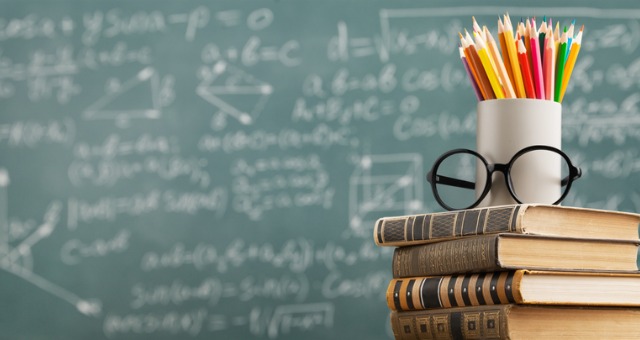Expert Tutors Offering Primary Science Tuition Singapore for All Grades
Expert Tutors Offering Primary Science Tuition Singapore for All Grades
Blog Article
A Comprehensive Overview to the Numerous Understanding Techniques in Key Science Guideline
The expedition of varied knowing techniques in key science direction presents a chance for educators to enhance pupil involvement and comprehension significantly. By checking out hands-on discovering techniques, inquiry-based methods, and collective techniques, we can determine efficient methods that deal with different discovering designs. In addition, the assimilation of technology and distinguished direction plays an important role in promoting a comprehensive setting. The question stays: exactly how can these methods be successfully implemented in the classroom to optimize their impact? The response depends on a better analysis of each method and its implications for mentor scientific research.

Hands-On Discovering Methods
Hands-on learning methods play a crucial role in primary science direction, engaging trainees in active expedition and trial and error. These methods permit learners to engage straight with products and phenomena, cultivating a deeper understanding of clinical principles. By utilizing manipulatives, versions, and real-life experiments, instructors develop a setting where pupils can observe, assume, and check their ideas.
Such techniques not only enhance understanding yet additionally grow important reasoning and analytical skills. When trainees take part in tasks like developing basic makers, planting seeds, or carrying out chemical reactions, they are motivated to ask concerns and seek solutions via their very own observations. This experiential method aids to demystify intricate scientific concepts, making them extra obtainable and relatable.
In addition, hands-on understanding promotes partnership among peers, as pupils often operate in groups to conduct experiments or share searchings for. This team effort not only enhances their learning experience yet additionally creates necessary social skills. Ultimately, integrating hands-on methods in key science guideline cultivates a lifelong love of understanding and inquisitiveness about the natural globe, laying a solid foundation for future academic searches in scientific research and beyond.
Inquiry-Based Discovering
Inquiry-based learning is an educational method that motivates pupils to ask questions, examine sensations, and create their very own understanding of scientific concepts. This technique changes the emphasis from conventional teacher-led direction to an extra student-centered experience, where students take the campaign in their educational journey. By promoting curiosity, inquiry-based knowing advertises much deeper interaction with the product, permitting pupils to discover subjects in a meaningful context.
In technique, this strategy typically includes hands-on experiments, observations, and important reasoning tasks that line up very closely with the clinical technique. Trainees are motivated to create theories, style investigations, and evaluate data, which cultivates vital skills such as problem-solving and analytical thinking. The function of the teacher in this framework is to help with exploration, directing trainees through the query process while encouraging independent idea and cooperation.
Additionally, inquiry-based discovering nurtures a sense of possession over the understanding procedure, inspiring trainees to pursue knowledge proactively. This approach not only improves understanding of scientific concepts however likewise cultivates a long-lasting love for learning, equipping students with the abilities required to navigate an increasingly intricate world.
Collaborative Learning Approaches
Collective understanding approaches equip trainees to participate in meaningful interactions with peers, promoting a common duty for their educational outcomes. In main scientific research guideline, these strategies encourage learners to work with each other to discover clinical concepts, resolve issues, and perform experiments (primary science tuition Singapore). By taking part in group activities, students can take advantage of varied perspectives, permitting richer understanding and retention of clinical knowledge
One secret facet of joint discovering is the emphasis on interaction skills. Pupils have to verbalize their thoughts, pay attention actively to others, and bargain concepts, all of which are crucial proficiencies in both real-world and scholastic contexts. This social interaction not just enhances their understanding of clinical concepts yet likewise advertises team effort and problem resolution skills.
When trainees see the value of their Get the facts contributions within a team, they are extra likely to take ownership of their knowing journey. Overall, including joint knowing approaches in key science guideline cultivates a vibrant discovering environment that prepares trainees for future scholastic and social obstacles.
Modern Technology Assimilation in Science
The assimilation of technology in main scientific research instruction improves finding out experiences by offering cutting-edge tools and resources that sustain numerous teaching methods, consisting of collective understanding - primary science tuition Singapore. The use of electronic systems, simulations, and interactive applications enables trainees to involve deeply with clinical ideas, helping with an extra hands-on method to learning
Digital research laboratories, for instance, make it possible for learners to conduct experiments securely and effectively, advertising inquiry-based discovering. These tools can mimic real-world scientific situations, permitting students to visualize complex processes that would certainly be difficult to duplicate in a typical classroom setup. Innovation promotes interaction and cooperation among pupils, as they can share searchings for and work together on tasks with on the internet platforms.
Additionally, multimedia discussions and instructional videos can enrich lessons by accommodating varied discovering designs, making abstract ideas much more easily accessible. Information evaluation devices also equip students to collect and interpret clinical information, strengthening important thinking abilities. On the whole, the critical unification of innovation in main scientific research guideline not just improves interaction however also prepares trainees for a more tips here technologically advanced culture, furnishing them with necessary skills for future clinical endeavors.
Differentiated Instruction Methods
Differentiated direction methods are important for attending to the varied needs of students in primary science education and learning. These methods allow instructors to tailor their training approaches to accommodate varying capabilities, passions, and discovering designs within the class. By his response utilizing set apart direction, teachers can produce an inclusive atmosphere that fosters involvement and enhances understanding of clinical concepts.
One efficient technique is to utilize adaptable grouping, which allows pupils to collaborate with peers at similar ability degrees or with varying point of views. This strategy urges peer discovering and advertises important reasoning. Furthermore, using selections in jobs can encourage pupils, permitting them to pick tasks that reverberate with their passions while still fulfilling curricular purposes.
Moreover, including tiered assignments is another valuable strategy. Deliberately jobs with differing degrees of intricacy, teachers can guarantee that all pupils are properly challenged, no matter their effectiveness. Using developmental evaluations to gauge recognizing additional enables educators to adjust their educational techniques dynamically, guaranteeing that each student gets the support they need.
Ultimately, applying separated instruction methods in primary scientific research education and learning not only boosts trainee knowing end results however also grows a passion for scientific research, preparing trainees for future scholastic quests.

Final Thought
In summary, effective key scientific research direction demands a diverse technique that includes hands-on learning, inquiry-based approaches, and joint methods. The integration of technology and differentiated guideline even more accommodates diverse discovering designs, fostering an environment for expedition and crucial reasoning. By implementing these methods, teachers can improve pupil engagement and comprehension, inevitably supporting a lifelong enthusiasm for scientific research and questions. Such extensive methods are crucial for developing notified and interested future scientists.
The expedition of diverse discovering techniques in main scientific research guideline presents an opportunity for teachers to boost student interaction and understanding significantly.Hands-on knowing methods play a critical function in main science direction, engaging students in energetic expedition and testing.Inquiry-based knowing is an instructional technique that urges pupils to ask concerns, explore phenomena, and build their very own understanding of scientific concepts.Collaborative learning methods equip trainees to engage in purposeful interactions with peers, cultivating a common obligation for their academic outcomes. In general, integrating collaborative knowing approaches in primary scientific research direction grows a vibrant understanding setting that prepares pupils for future scholastic and social difficulties.
Report this page